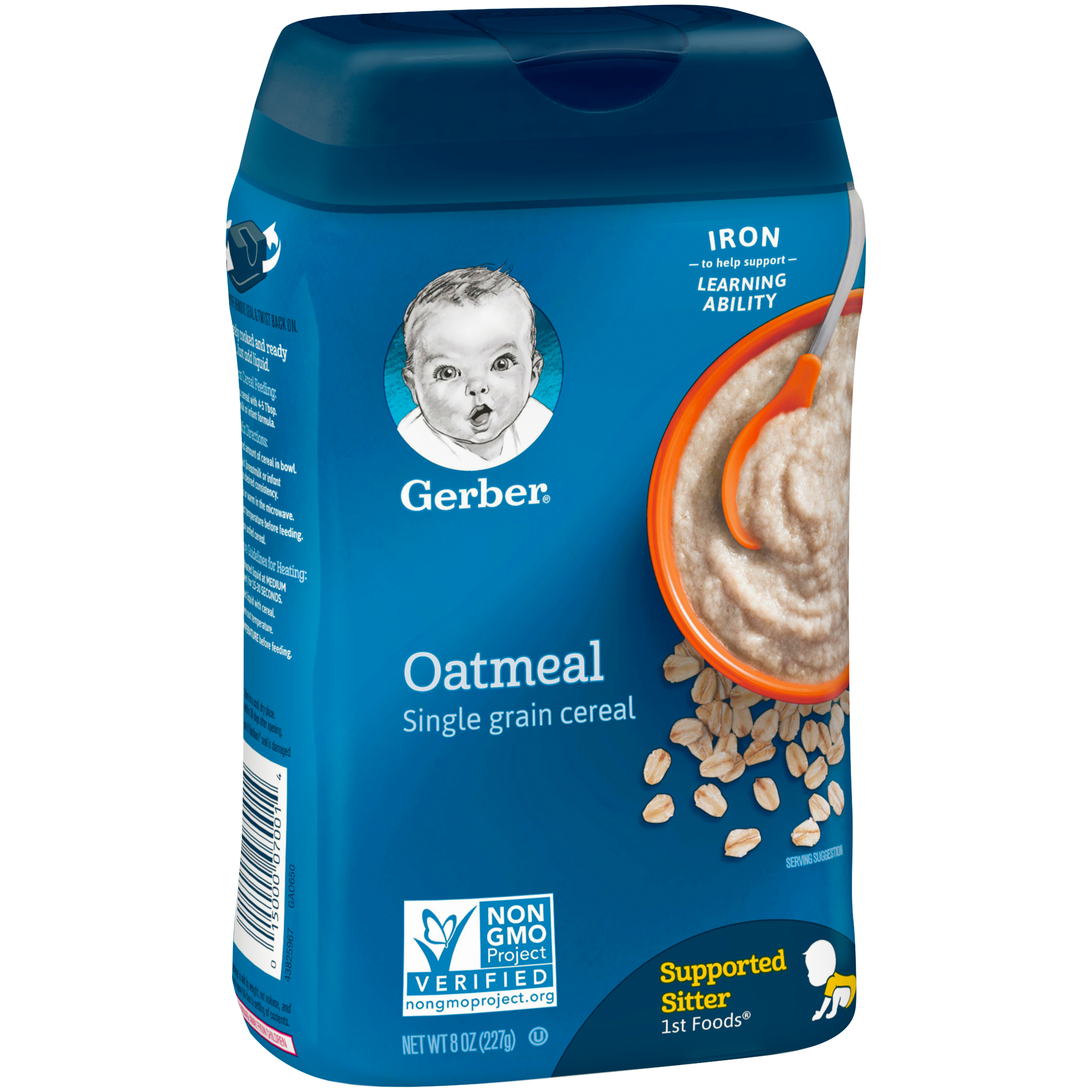
GERBER SingleGrain Oatmeal Baby Cereal, 8 oz La Comprita
Bring 1/2 cup of water to boil, add in 1/4 cup of quick oats and stir to combine. Reduce heat to medium and cook for 1 minute, stirring occasionally. Remove from the heat and let cool. Add breast milk, formula or water, if needed to get the oats to the desired consistency. Add mix-ins and toppings of choice.

Hipp Organic Baby Oat Cereal Pap Nature's Market
This Gerber baby food stage 1 uses organic oatmeal for a single grain variety. This organic baby oatmeal cereal is made with no artificial colors or flavors. Gerber oatmeal contains iron to help support learning ability. Gerber oatmeal cereal also has vitamin C, vitamin E, zinc, 6 B vitamins and calcium. Gerber First Foods single-grain infant.

Gerber Organic Oatmeal Cereal Infant Cereal for 6 Months + ( 280 gm
Put the cooked oats, along with 1/4 cup of water, into a Baby Bullet, food processor or blender. Blend until smooth. Add additional water, breast milk or formula to reach your desired consistency. Divide the batch into different portions and add a pinch of different spices to each portion (optional).
Gerber Gerber 1F Oatmeal Cereal Base Cereal WIC Baby Baby Food
Infants can start eating baby oatmeal cereal as early as 4 months old. Although it's recommended by the American Academy of Pediatrics to start introducing solid foods at 6 months, there are a few indicators that prove infants might be ready for baby oatmeal cereal a few months earlier. It's OK to offer solid foods when your little one has.
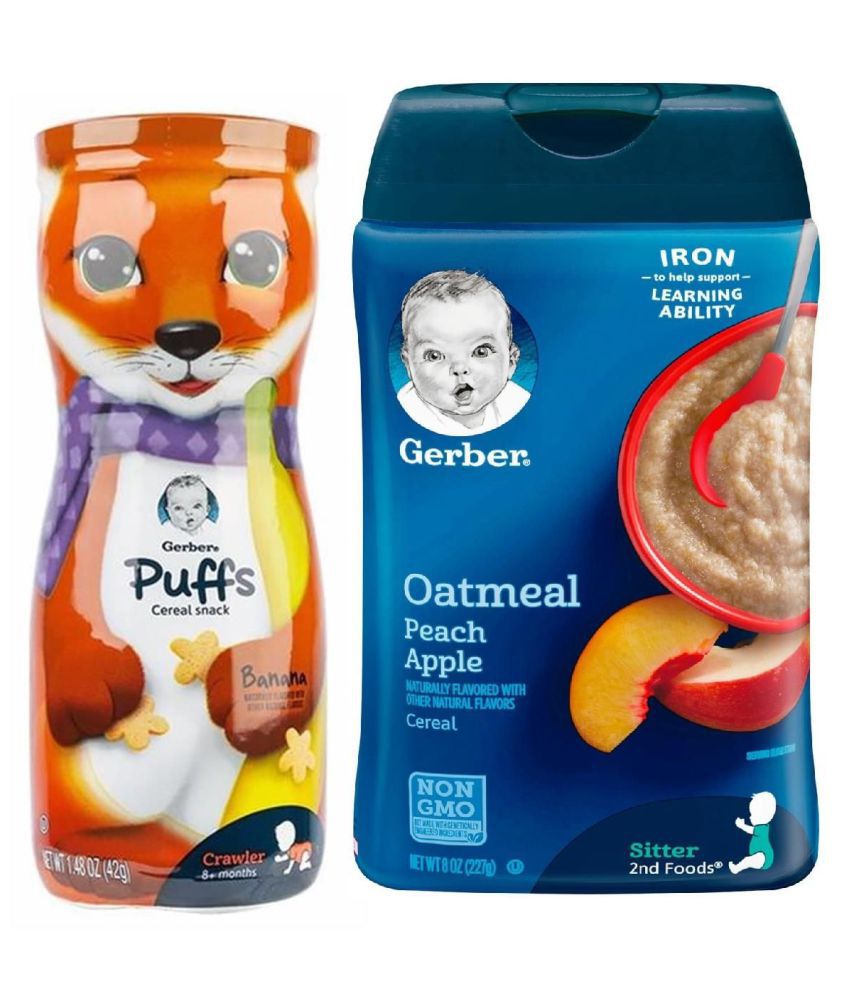
Gerber Oatmeal Infant Cereal for 6 Months + ( 269 gm ) Pack of 2 Buy
Add the oats to a blender. Secure the lid and grind, starting on low and working up to high, until the oats form a flour-like powder. Add 1 tablespoon of the oat powder to a heat safe bowl. Stir in about 2 tablespoons very hot water (or warm breastmilk or formula), adding more as needed to thin to desired consistency.
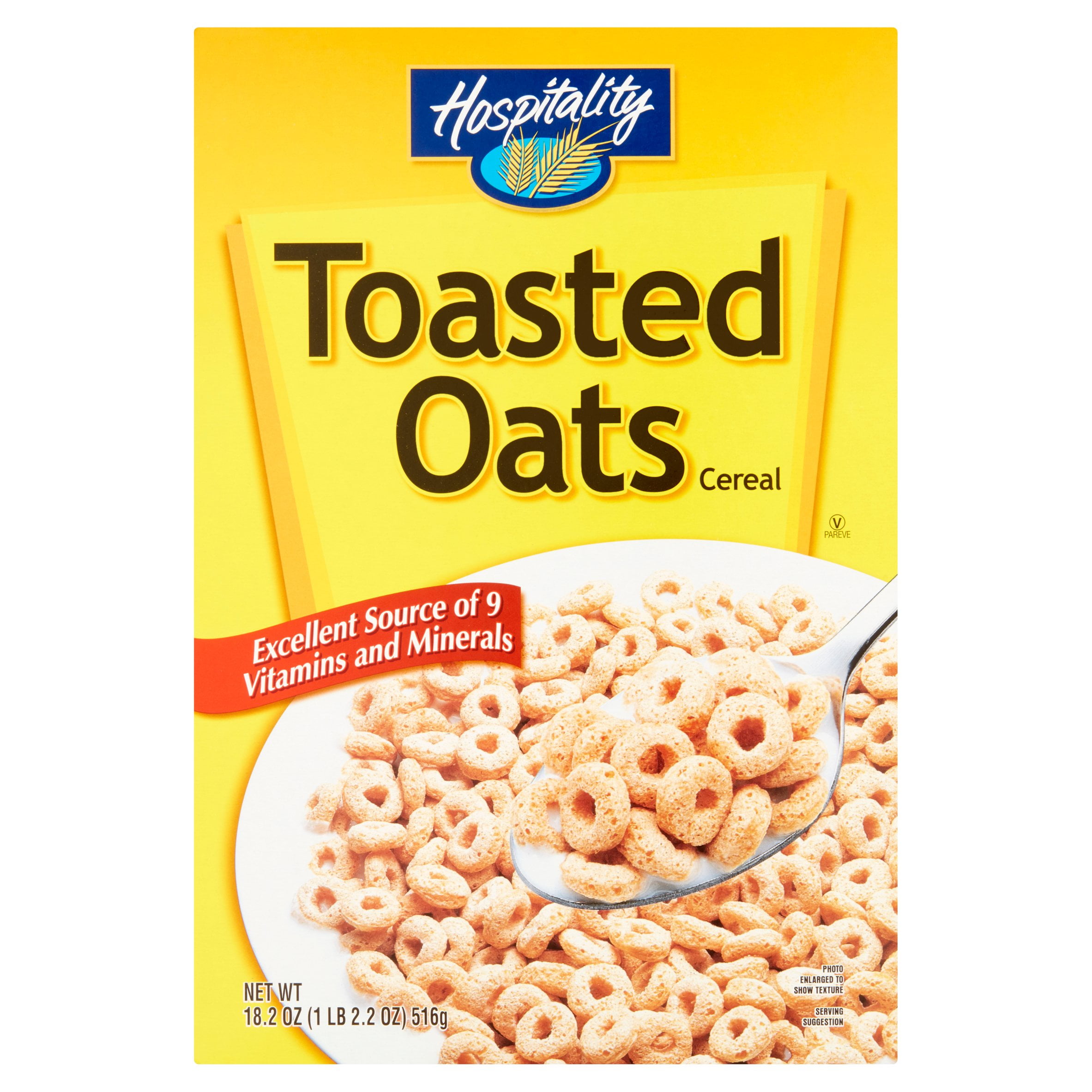
Hospitality Toasted Oats Cereal, 18.2 oz
Discard the uneaten cereal. Unfortunately, you can't save leftover baby cereal because harmful bacteria can grow in it. Throw away the cereal your baby didn't eat and mix together a fresh bowl of cereal when your baby is ready for their next solid meal. Babies between 4 and 6 months old usually eat between 1 to 2 tablespoons (2.5 to 5 g) of prepared oatmeal cereal a day.

Gerber Baby Cereal Oatmeal Walgreens
Best Quinoa Baby Cereal. HappyBaby Oats & Quinoa Ancient Grains Baby Cereal ($3) This option from HappyBaby is made from a blend of oats and quinoa, which Best says is a nutrient-dense ancient.
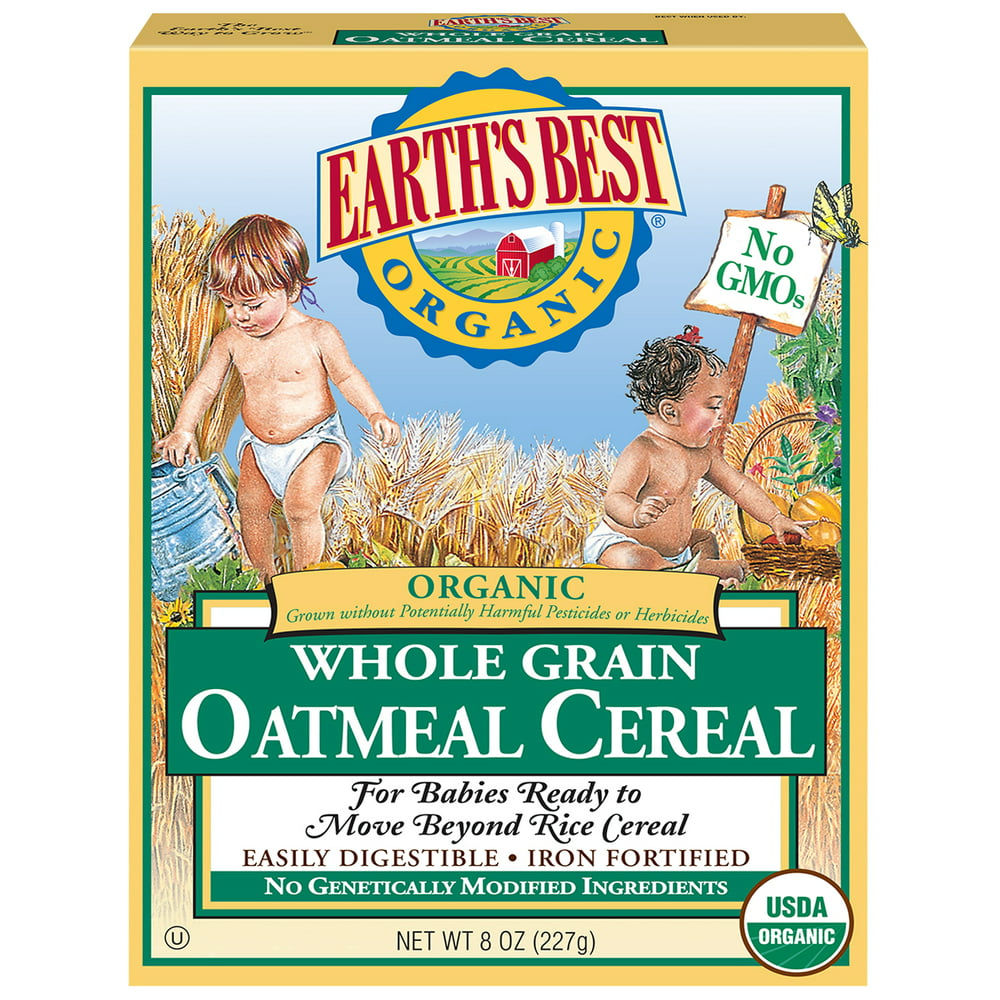
Earth's Best Organic Stage 2, Whole Grain Oatmeal Baby Cereal, 8 oz Box
Add rolled oats and water into a pot. Heat over medium heat for 4-5 minutes or until it starts to boil. Add extras, if any (diced fresh fruits, dried fruits, seeds, vegetables) before it starts to boil, it will infuse more flavor into the porridge. Let it boil for about 1-2 minutes, while stirring occasionally.
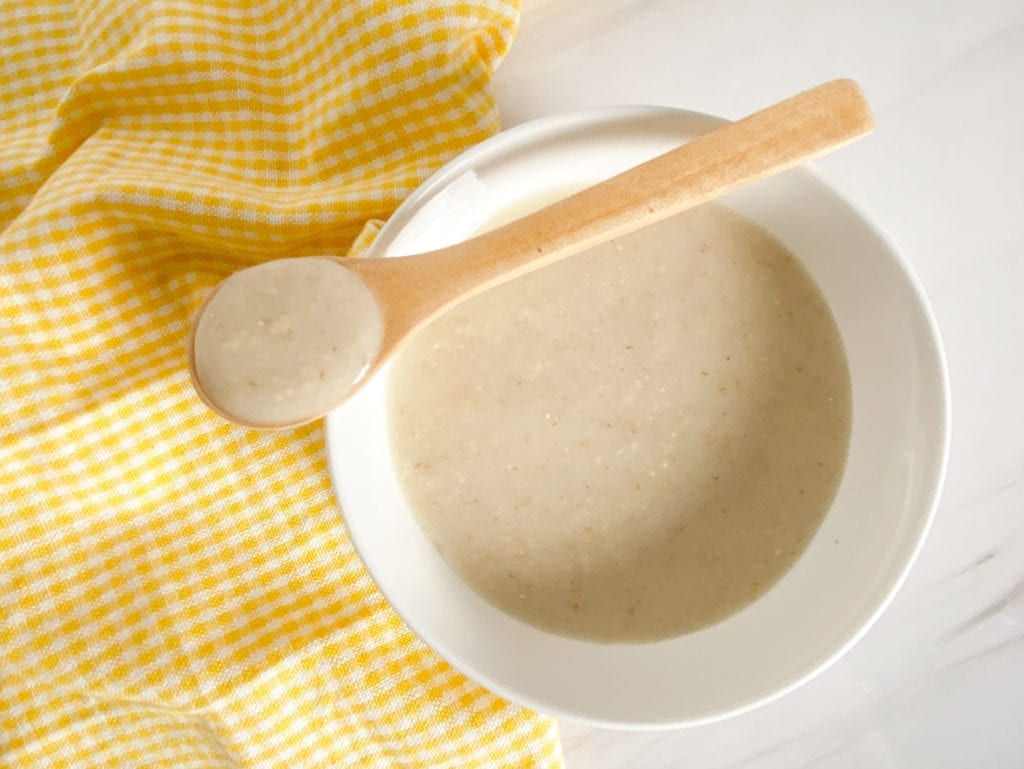
Oat Baby Cereal Raising Veggie Lovers
Gerber Cereal for Baby Grain & Grow Oatmeal contains whole-grain oats fortified with iron and 12 other nutrients like calcium, zinc, and vitamins C and E. Parents say it stirs easily into a smooth paste that babies tend to enjoy: "My daughter really liked it," says Leah Rocketto, Associate Commerce Director for BabyCenter, who appreciated that the plain oatmeal was a good medium for mix-ins.
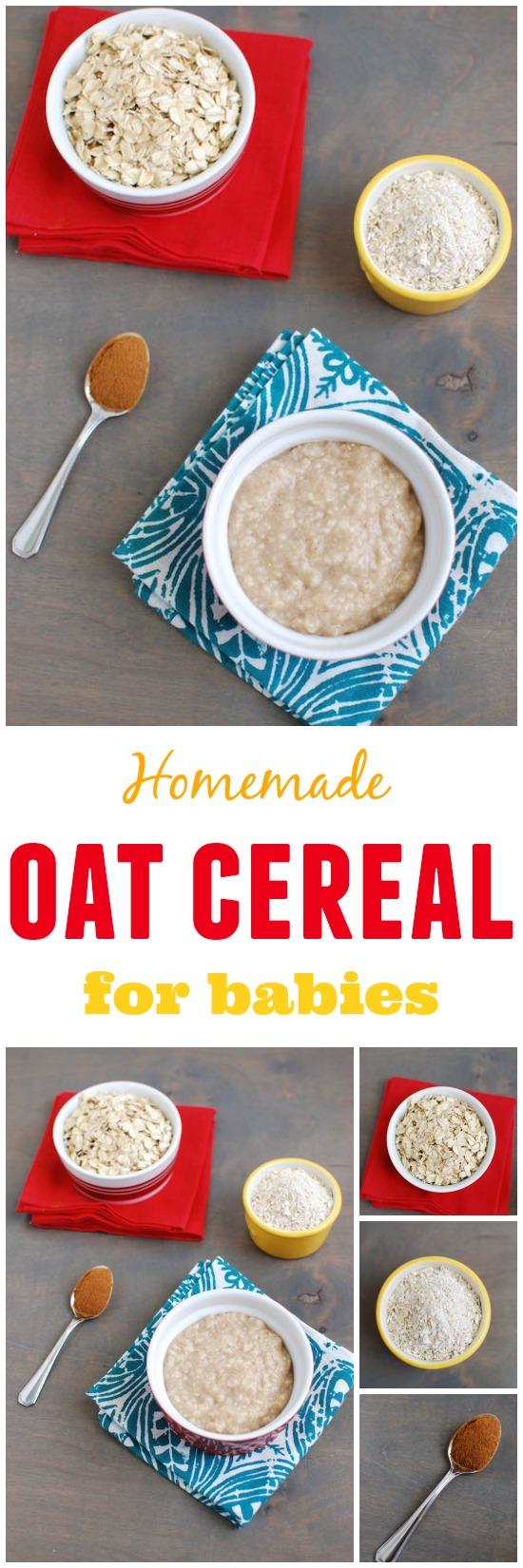
Homemade Oat Cereal for Babies Baby Oatmeal
Grown and harvested without pesticides or herbicides, Earth's Best Organic Whole Grain Oatmeal Cereal is a solid choice for your babe's first solid food. Without any added sugar or salt, this baby cereal is fortified with the necessary vitamins and iron that your baby needs to grow healthy and strong. 8. A Great Way to Introduce Berries.
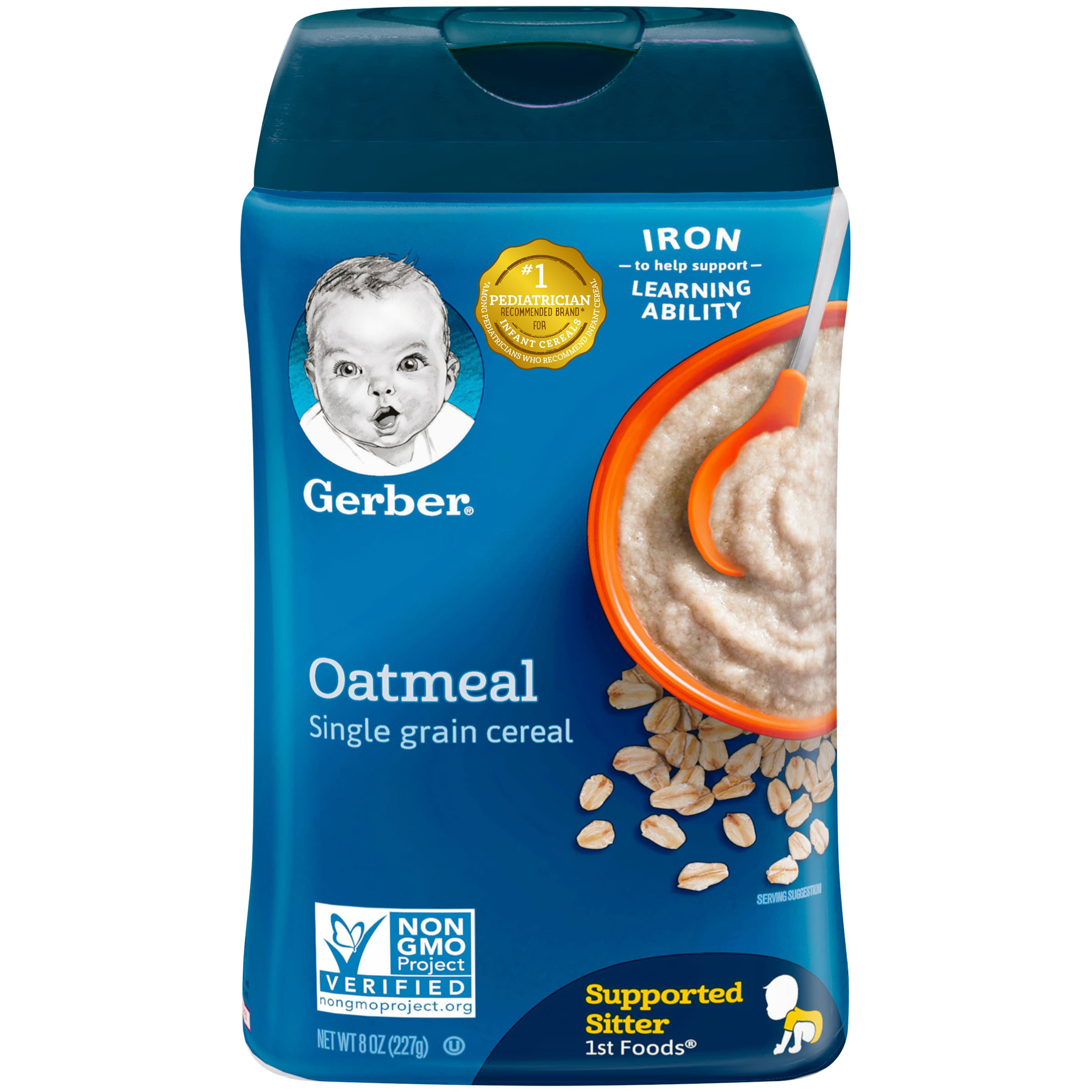
Gerber 1st Foods Single Grain Oatmeal Baby Cereal, 8 Oz (Pack of 6
Most pediatricians recommend starting rice baby cereal at about 4-6 months old for baby's first food. Some doctors will recommend it even earlier as a way to help newborns sleep. Mom's are urged to add a little rice baby-cereal and formula to baby's bottle as a way to keep him full and sleep through the night. There are a few problems.

Gerber Oatmeal Cereal Infant Cereal for 6 Months + ( 1 gm ) Buy Gerber
In a nutshell: Based on expert advice and the author's personal experience, we chose Gerber Organic Single Grain Oatmeal Baby Cereal as the overall best baby cereal, based on its nutritional value and ease of preparation and storage. Ready, Set, Food! Organic Baby Oatmeal Cereal at Amazon, $7.48.

Gerber, DHA & Probiotic, Single Grain Oatmeal Cereal for Baby, 8 oz
Stovetop method: In a small saucepan, bring water or milk to a gentle simmer. Stir in oats. Simmer until oats have absorbed the liquid stirring occasionally. Add more liquid if needed. This should take 1-3 minutes for quick oats and 3-5 minutes for rolled oats. Cool to an appropriate temperature before serving to baby.
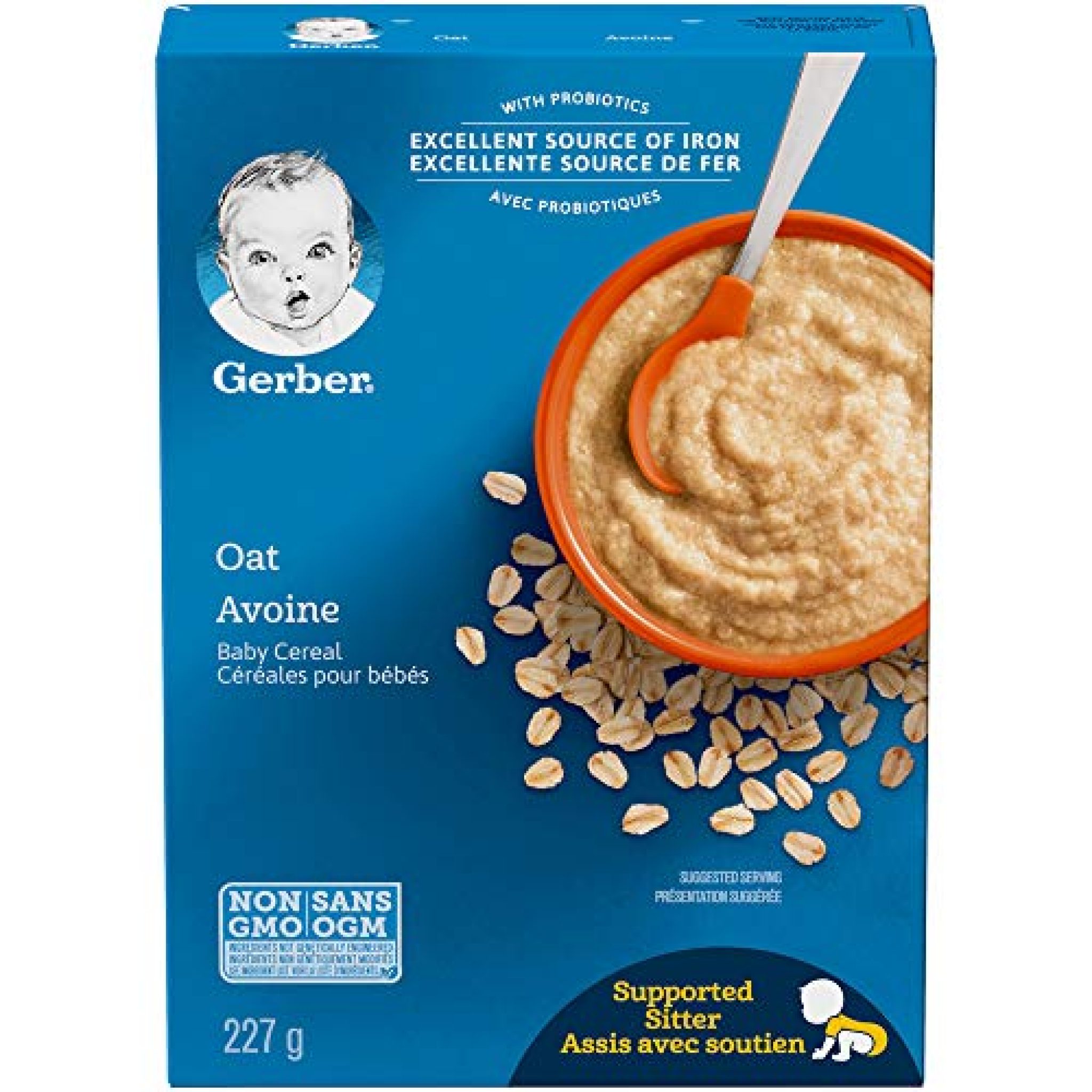
GERBER CEREAL Stage 1 Oat, Baby Food, Cereals, Starter Stage, 227 g
Just add liquid. Baby's First Cereal Feeding. · Mix 1 tbsp. cereal with 4-5 tbsp. of breastmilk or infant formula. Easy-to-Mix Directions. · Pour or spoon desired amount of cereal in bowl. · For Baby: Stir in liquid (breastmilk or infant formula) to desired consistency. · For Toddler: Mix with milk, water, or GERBER® Juice for children.
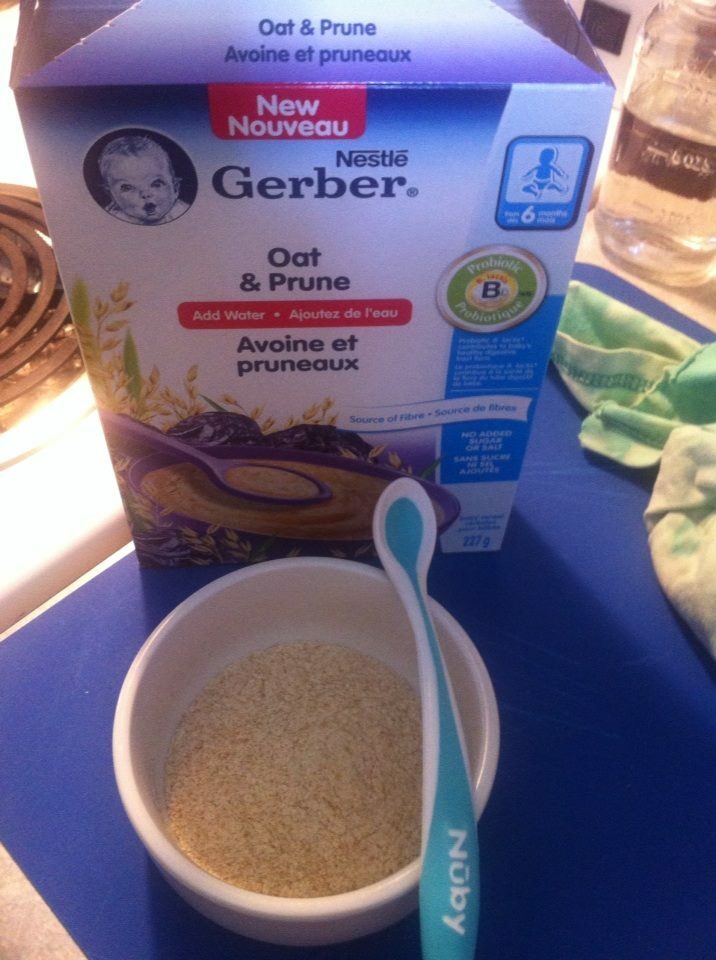
Nestlé Gerber Oat & Prune Baby Cereal reviews in Baby Food ChickAdvisor
Step-by-Step Guide on How to Make Baby Oatmeal. Gather everything you need to make the oatmeal: oats, cooking liquid, and a food processor or blender. To get started, Shaw recommends grinding dry oats in a blender or food processor until a fine powder is formed with no large lumps. Next, cook the mixture according to the specific type of oats.
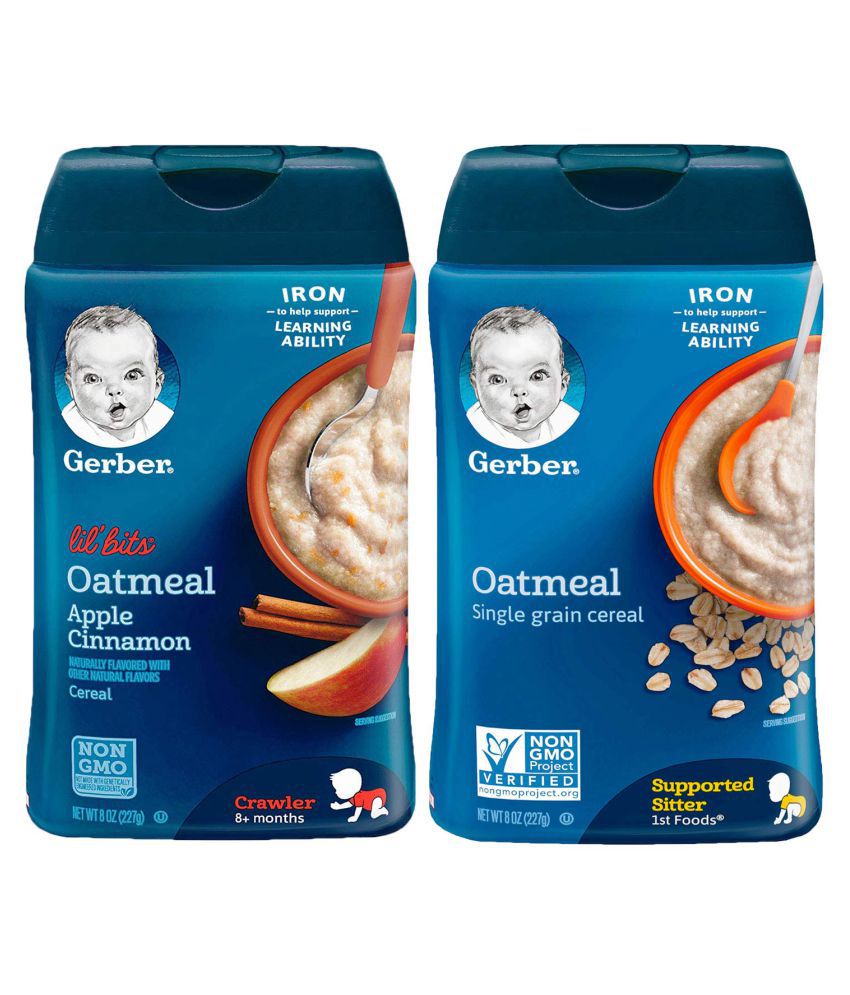
Gerber Oat Apple Cinnamon + Oatmeal Cereal Infant Cereal for 6 Months
No. Infant cereal, oat-based or otherwise, does not have to be a baby's first food. Baby cereals were historically recommended as a first food because they are often fortified with iron, an essential nutrient that tends to be low in babies consuming primarily breast milk starting around 4-6 months of age.